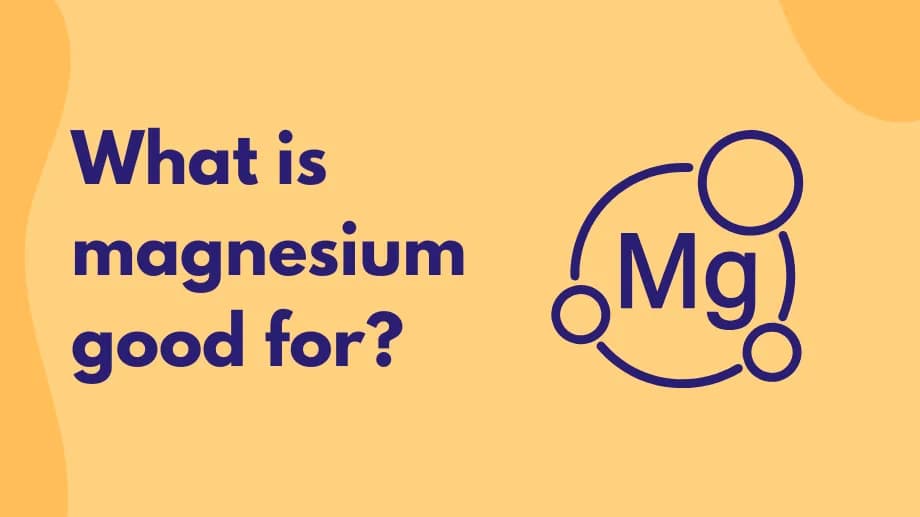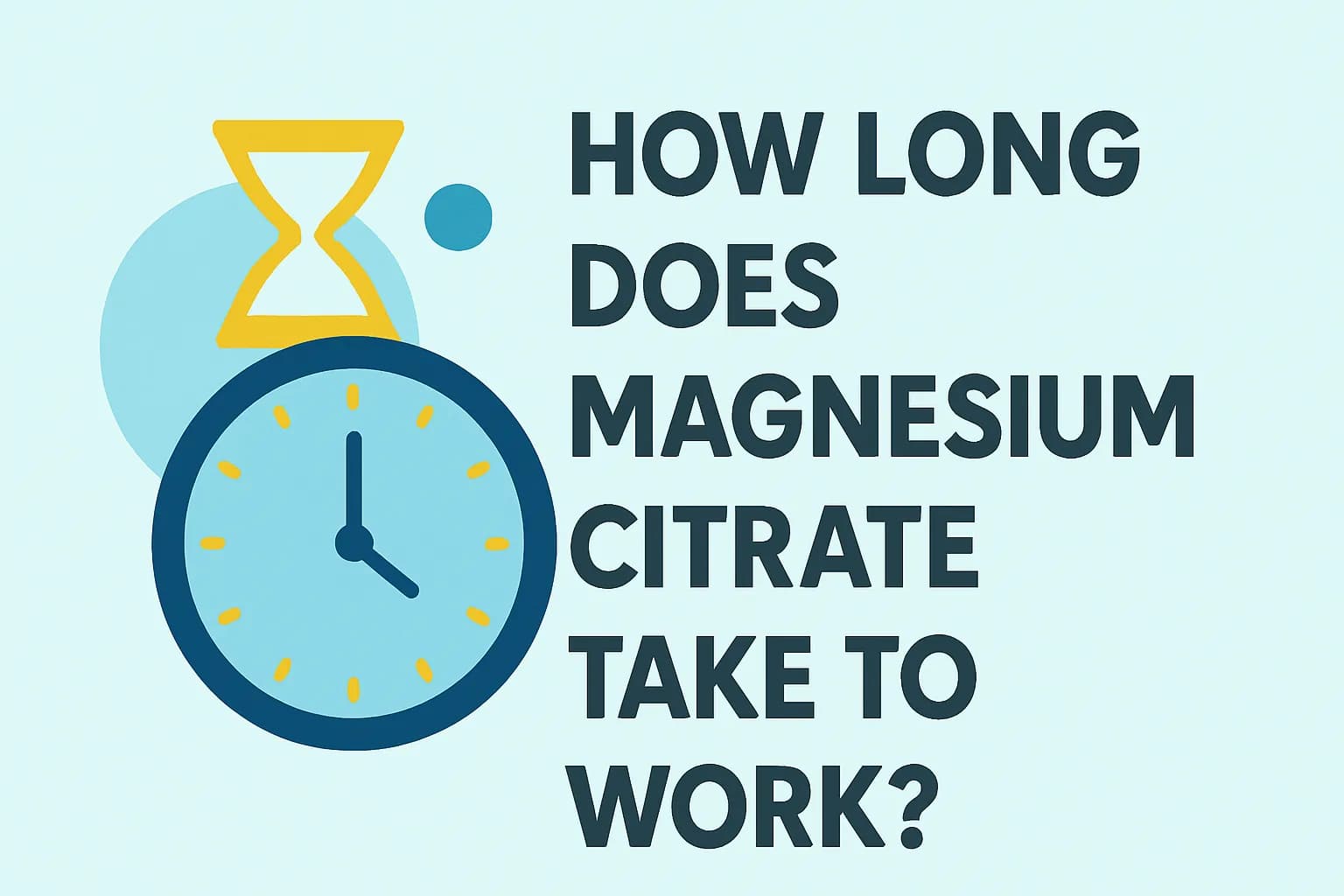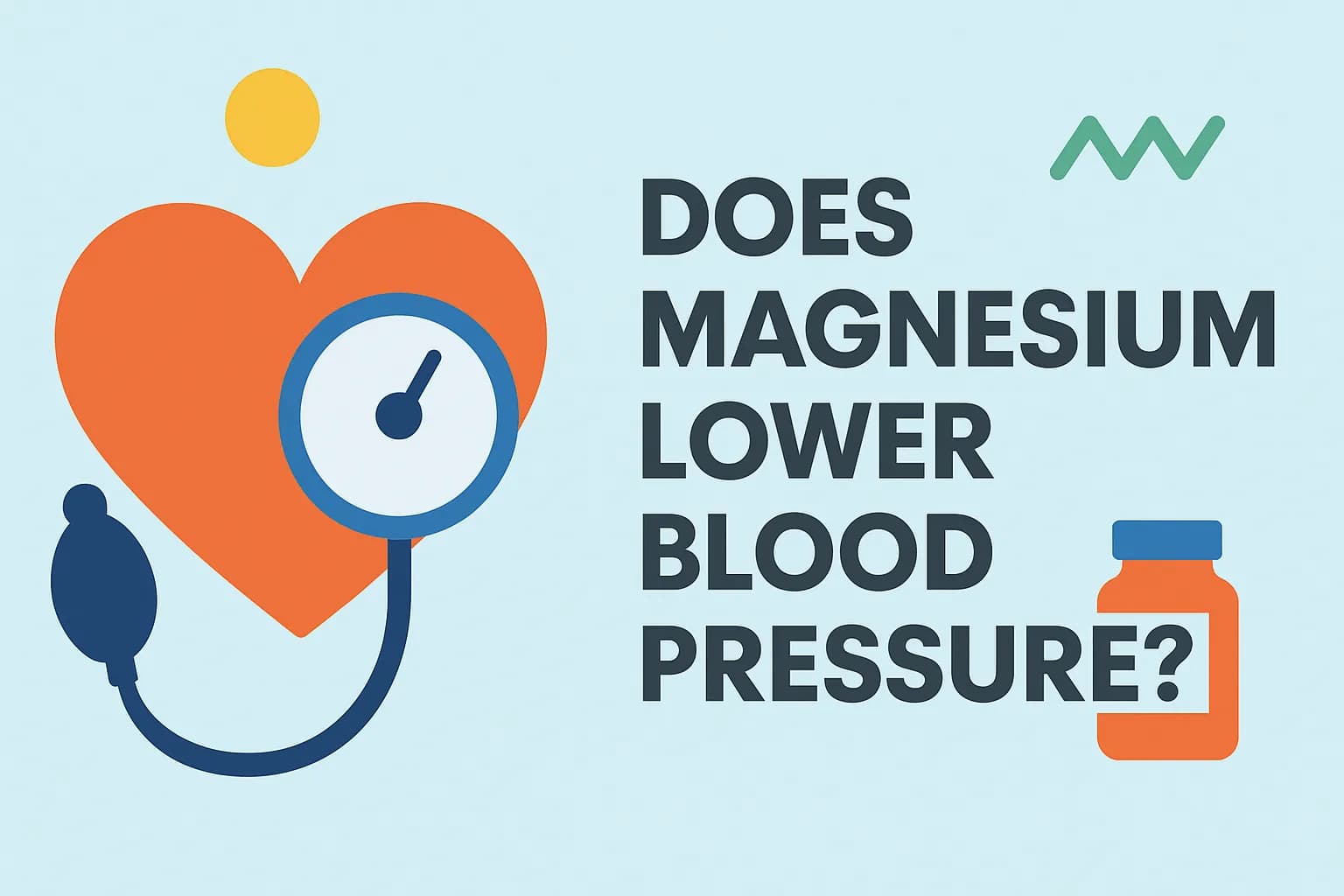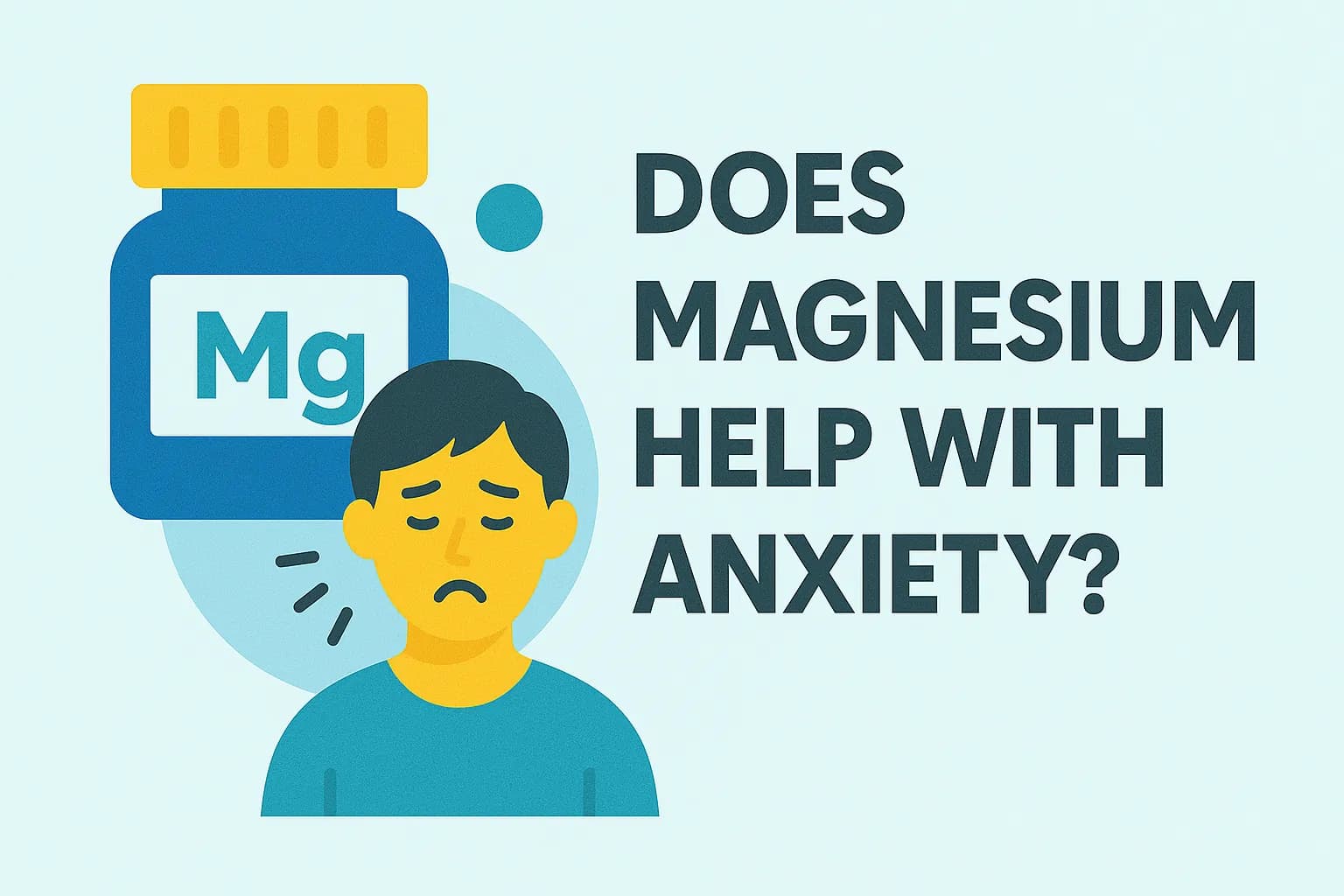Can magnesium help you sleep?
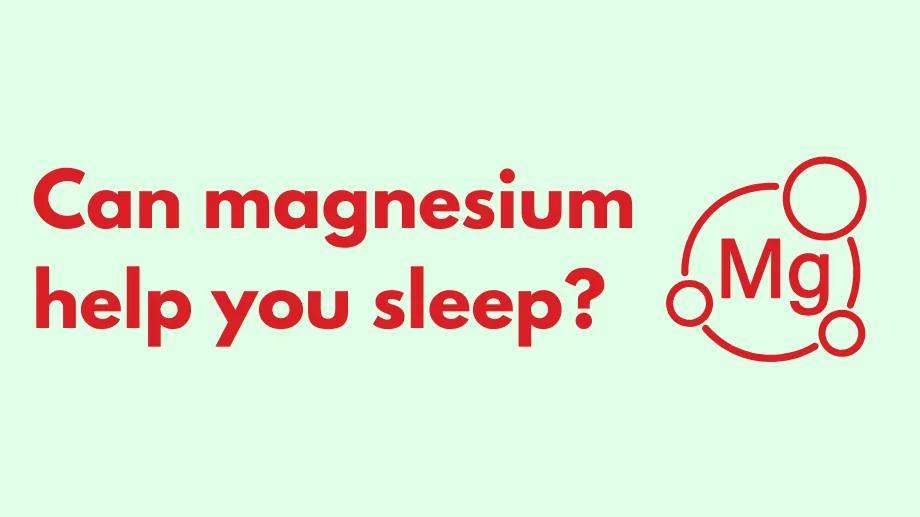
Does magnesium help you sleep?
Magnesium is an essential mineral involved in nerve and muscle function, blood sugar control, bone development, and heart health. Nearly 50% of Americans consume less than the recommended amount. Some evidence suggests magnesium supplementation may improve sleep by calming the central nervous system and promoting muscle relaxation, but results are mixed. Consult your healthcare provider before starting any supplement.
How magnesium may improve sleep
- Increases GABA neurotransmitter activity, which has a calming effect
- Inhibits NMDA receptors, promoting muscle relaxation
- Blocks calcium entry into muscles, aiding overall relaxation
- Helps regulate melatonin, the hormone controlling the sleep–wake cycle
Scientific evidence
- Some trials show magnesium + vitamin B complex + melatonin improved sleep quality in people with insomnia (2019 study)
- Other studies in older adults found no significant benefit over placebo
- Few randomized controlled trials exist, so routine recommendation for insomnia is not established
Other benefits of magnesium
- Improved exercise performance
- Reduced anxiety and depression symptoms
- Better blood sugar control
- Lower blood pressure and heart health
- Enhanced bone health
- Migraine relief
- Premenstrual syndrome (PMS) symptom relief
- Management of restless leg syndrome
- Prevention of preeclampsia and eclampsia
Dietary sources of magnesium
- Pumpkin seeds, roasted, 1 oz (37% DV)
- Chia seeds, 1 oz (26% DV)
- Almonds, dry roasted, 1 oz (19% DV)
- Spinach, boiled, ½ cup (19% DV)
- Cashews, dry roasted, 1 oz (18% DV)
- Peanuts, oil roasted, ¼ cup (15% DV)
- Shredded wheat cereal, 2 large biscuits (15% DV)
- Soymilk, 1 cup (15% DV)
- Dark chocolate, 1 oz (15% DV)
- Black beans, cooked, ½ cup (14% DV)
- Edamame, shelled, cooked, ½ cup (12% DV)
- Peanut butter, smooth, 2 Tbsp (12% DV)
- Potato, baked with skin, 3.5 oz (10% DV)
- Brown rice, cooked, ½ cup (10% DV)
- Yogurt, plain low-fat, 8 oz (10% DV)
- Fortified cereals, 1 serving (10% DV)
- Instant oatmeal, 1 packet (9% DV)
- Kidney beans, canned, ½ cup (8% DV)
- Banana, 1 medium (8% DV)
Types of magnesium supplements
- Magnesium citrate – raises levels and acts as a laxative
- Magnesium oxide – used for constipation or antacid, lower absorption
- Magnesium chloride – well absorbed, also used topically
- Magnesium sulfate (Epsom salt) – baths for muscle soreness
- Magnesium glycinate – may aid sleep, anxiety, and muscle relaxation
- Magnesium lactate – food additive, less common supplement
- Magnesium malate – well absorbed, gentler on stomach, used for fatigue
- Magnesium taurate – limited evidence for blood pressure and heart health
Side effects of magnesium supplementation
- Nausea, diarrhea, vomiting, abdominal cramping
- Excess magnesium can cause low blood pressure, slowed heart rate, confusion, breathing difficulty, arrhythmias, coma
Best form for sleep
Magnesium glycinate is often recommended for sleep support due to its calming effects and the glycine component, which may promote sleep in animal studies. Choose a reputable brand with third‑party testing.
Who is at risk for magnesium deficiency?
- People with malabsorption syndromes (celiac, Crohn’s)
- Type 2 diabetics
- Regular alcohol or high caffeine consumers
- Older adults
- Users of proton pump inhibitors, certain antibiotics, or cancer/diabetes medications
- Those with parathyroid or kidney disease
Sources
- Arab A, Rafie N, Amani R, Shirani F. The role of magnesium in sleep health: A systematic review. Biol Trace Elem Res. 2023;201(1):121–128.
- NIH Office of Dietary Supplements. Magnesium Fact Sheet for Health Professionals. Accessed Sept 19, 2024.
- Marshall NS, et al. Magnesium supplementation for RLS and PLMD: A systematic review. Sleep Med Rev. 2019;48:101218.
- Gröber U, et al. Magnesium in prevention and therapy. Nutrients. 2015;7(9):8199–8226.
- Allen MJ, et al. Magnesium. NLM Bookshelf. 2023.



